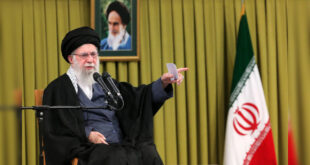District attorneys in Moscow have started reviewing local scientific and educational institutions, asking universities to provide information about any students involved in protests or publications about the difficulties of life in Russia. The “University Solidarity” student union first reported the new inquiry on Friday, citing orders addressed to RANEPA (the Russian Presidential Academy of National Economy and Public Administration under the President of the Russian Federation). The website Znak.com also reported the story on October 16. Specifically, administrators are being asked to complete forms detailing any politically sensitive student or faculty activities affiliated in any way with foreign organizations.
Prosecutors want to know about any planned events that might “cultivate public perceptions that Russia’s authorities must be changed” or “facilitate conditions for destabilizing the country, for example, by using existing socio-economic problems.” The District Attorney’s Office is also asking school administrators to report any articles, literature reviews, or scholarly research that either seeks to discredit Russia’s leadership and its foreign and domestic policies or contains “biased assessments of Russia’s socio-economic development.”
If students are involved in any activities that might qualify as pockets of “pro-American influence” (including even language study groups), Moscow’s district attorney wants to know. The same goes for events advocating stronger local government or cutbacks to the Russian state’s authority — proposals the D.A. describes as “interference in Russia’s domestic affairs.” Prosecutors also want information about any activism that could incite ethnic separatism or discredit the Kremlin’s decision making.
The list of taboo issues in Moscow’s higher education doesn’t end there: the district attorney wants information about any events that might “radicalize” young people by “destroying Russia’s traditional spiritual and moral values” or “falsifying history for anti-Russian forces’ geopolitical aims.”
District attorneys in Moscow issued separate orders regarding “interference in the electoral process,” demanding reports about any instructors or students being trained as election observers or campaign activists. Prosecutors are particularly interested in information about events where young people are taught about “civic protest,” learning how to organize rallies, mobilize politically, and exercise their rights when confronted by the police.
“The prosecutor’s office believes that the training of election observers, initiatives to change the law, and the promotion of democratic and liberal values are actions that should concern university administrators. We’re seeing the District Attorney’s Office trying to force universities to inform on their own students and faculty,” the “University Solidarity” student union warned on its website.
 Eurasia Press & News
Eurasia Press & News



